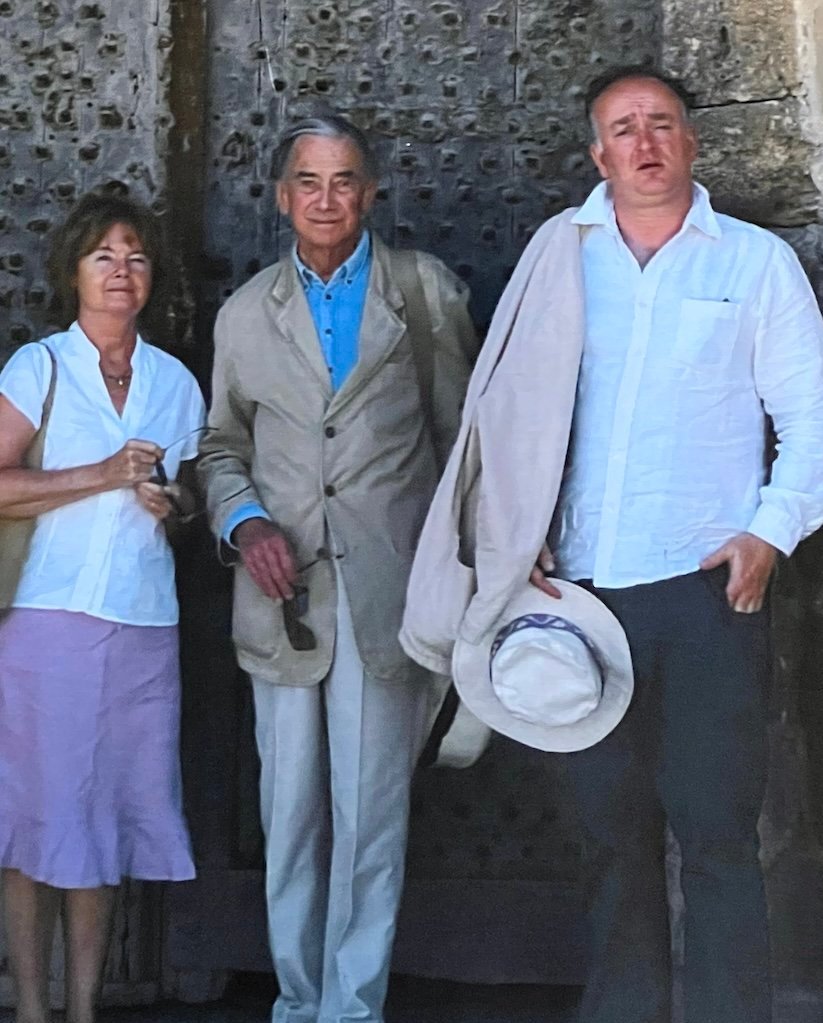Book review: “Meander: East to West along a Turkish River" by Jeremy Seal
At its simplest level, it is a burlesque adventure, where a well-meaning amateur English adventurer blunders his way through a totally impractical project
“The Train in Spain; Ten Great Journeys through the Interior” by Christopher Howse
Howse’s real connections are all with carved stone and the printed word, especially with the lovers of Gothic architecture
“God's Zoo; Artists, Exiles, Londoners” by Marius Kociejowsk
Each of the fifteen chapters has been condensed into one elegant, superbly long, eccentrically diverse and learned conversation.
“Loyal Enemies; British Converts to Islam, 1850-1950” by Jamie Gilham
The late 19th-century had some advantages for a homegrown Muslim missionary of talent, for the tiresome quarrels between rival sectarian churches had alienated many Christian believers.
Book review: “On the Wilder Shores of Love” by Lesley Blanch
The resulting memoir, only now published ten years after her death, is a work of loving devotion and a true reflection of Lesley Blanch in her own words.
Book review: “The Rise Of Islamic State: Isis And The New Sunni Revolution” by Patrick Cockburn
the invasion of Iraq in 2003 by the USA and its dependent allies is not only a crime, but one that was spectacularly ill-advised.
“The Fall of the Ottomans: The Great War in the Middle East, 1914-1920” by Eugene Rogan
A chronological tale of the First World War might be wearyingly familiar, but by telling it from the perspective of the Ottoman Empire, Eugene Rogan grabs the reader’s attention – as if we are hearing the Iliad from the Trojan battlements.
Book review: “Aleppo: The Rise and Fall of Syria’s Great Merchant City” by Philip Mansel
In the background to this enduring triangular relationship a shifting chain of alliances bound the city of Aleppo to tribes of Bedouin (horse-breeding) Arabs to the east, Kurdish clans in the hills to the north and Alawi highlanders to the west.
Book review: “The Naked Shore: of the North Sea” by Tom Blass
National myths are also slowly washed away. The Romans were less invincible on the water than they liked to boast and even the Vikings are put back into their historical box.
Book review: “Agents of Empire: Knights, Corsairs and Spies in the 16th century Mediterranean World” by Noel Malcolm
... the book’s fine focus is trained on the condition and fate of the nobles, citizens, peasant cultivators and highland clansmen
Book review: “Unreasonable Behaviour” by Don McCullin
… what makes him remarkable is his restless quest for the perfection of his craft continuously sharpened by a vast capacity for work
Book review: “Medina in Birmingham, Najaf in Brent: Inside British Islam” by Innes Bowen
Over 60% of Muslims in Britain come from the lands of the old Raj - Pakistan, India and Bangladesh. So Urdu and English are the languages of communication in British Islam, not modern classical Arabic, let alone Koranic Arabic.
Book review: “Outlandish Knight: The Byzantine Life of Steven Runciman” by Minoo Dinshaw
This biography is both funny and erudite as it chronicles a fascinating caste of dangerously charming spies, poet-scholars, scheming Oxbridge academics, dashing majors and clever queens.
Book review: “Sufism & Surrealism” by Adonis
... for the small readership who can engage in the poetics of two cultures situated in two different ages, it is a work of extraordinary richness.
Book review: “The Marches: Border walks with my father” by Rory Stewart
Today Rory finds the land no longer in the hands of indigenous native farmers, but increasingly divided between factory farms and national parks, the gaps filled in with a spreading suburbia of retirement villages and tourist-friendly infrastructure.
Book review: “The Man Who Created The Middle East: A Story of Empire, Conflict and the Sykes-Picot Agreement” by Christopher Simon Sykes
... he started out as a convinced imperialist but was so disgusted by British rule in India (and French rule in North Africa) that he eventually realized that mere administrative efficiency should never be exchanged for freedom.
Book review: “Footprints in Spain: British lives in a foreign land” by Simon Courtauld
Britain banned the practice of bull baiting in 1835 but, in Spain, the ritualized slaying of a fierce wild animal, timed to punctuate the annual calendar and local festivals, continues to this day.
Book review: "Ariel, a Literary Life of Jan Morris" by Derek Johns
the honesty with which she chronicled her change of sexual identity has made Conundrum arguably her most famous book.
Book review: “Arabs: A 3,000-Year History of Peoples, Tribes and Empires” by Tim Mackintosh-Smith
Mackintosh-Smith is not just immersed in this history, he has been endangered by it. Alongside his fellow citizens of Sanaa, he has witnessed the violence and individual tragedies of three Yemeni civil wars, evidence of which is sadly etched in the book's dedication.
Book review: “The Stopping Places: a journey through Gypsy Britain” by Damian Le Bas
What gives his book its special poignancy is that in order to create this book (to read, research, question, record and write) he has in the process, expelled himself from his tribe.



